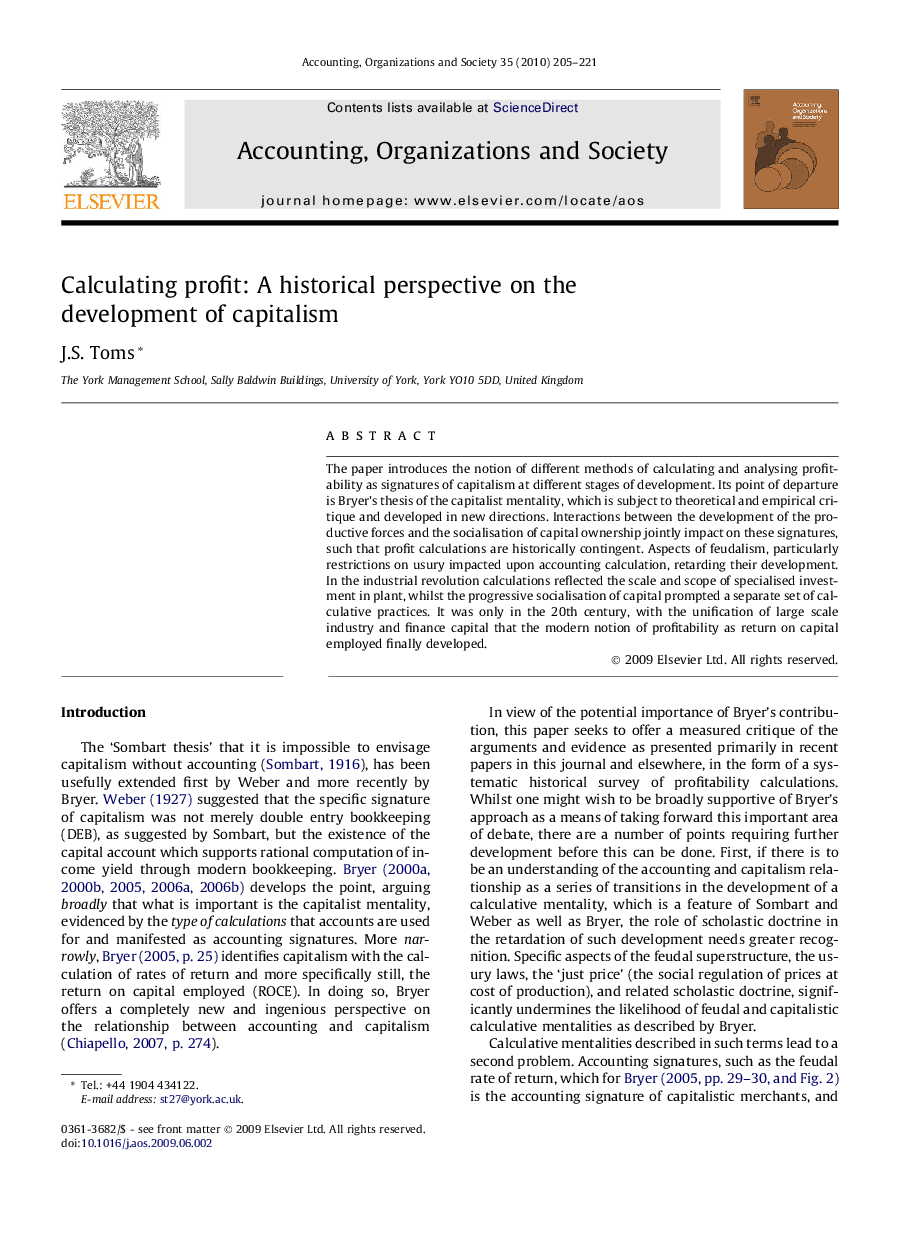| Article ID | Journal | Published Year | Pages | File Type |
|---|---|---|---|---|
| 878821 | Accounting, Organizations and Society | 2010 | 17 Pages |
The paper introduces the notion of different methods of calculating and analysing profitability as signatures of capitalism at different stages of development. Its point of departure is Bryer’s thesis of the capitalist mentality, which is subject to theoretical and empirical critique and developed in new directions. Interactions between the development of the productive forces and the socialisation of capital ownership jointly impact on these signatures, such that profit calculations are historically contingent. Aspects of feudalism, particularly restrictions on usury impacted upon accounting calculation, retarding their development. In the industrial revolution calculations reflected the scale and scope of specialised investment in plant, whilst the progressive socialisation of capital prompted a separate set of calculative practices. It was only in the 20th century, with the unification of large scale industry and finance capital that the modern notion of profitability as return on capital employed finally developed.
